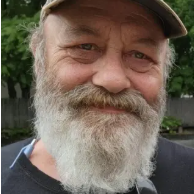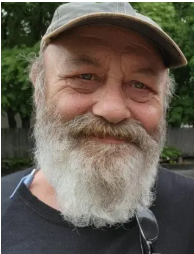Adrian Tomine is a 49-year-old, Japanese-American cartoonist. His illustrations appear in The New Yorker magazine. He also publishes comic books and graphic novels. He's been self-publishing since he was a teenager. His main work was a series called Optic Nerve (1991). The ninth issue in 2004 was called "Shortcomings," which is the basis of this film adaptation. It mainly focuses on Asian-American interracial dating and some psychological issues therein and cultural commentary throughout. It's possible that there are autobiographical elements to the story, as the character and setting are akin to Tomine's own life.
Justin H. Min (Beef and The Umbrella Academy) stars as Ben Tanaka, a Japanese American from northern California who is an artist, which probably is the extent of his backstory that correlates to Tomine. Where Tomine and Ben Tanaka differ is the kind of art they each do. Ben is an aspiring filmmaker, not a cartoonist. Min is in his thirties, but his character seems younger like maybe mid to late 20's. Yet, Ben is seemingly more mature than that, as he's also the manager of a cinema in Berkeley. He is perhaps in a kind of funk or possible depression due to his failed attempt to make a film, which likely bankrupted him.

Ally Maki (The Big Door Prize and Wrecked) co-stars as Miko Hayashi, the girlfriend to Ben. She's also aspiring to work in the film business, but she seems to be a student. Maki is in her mid 30's but her character could possibly be younger. She has a nice apartment, but it appears to be financed by Miko's seemingly wealthy father. This probably affords her time to get a post-graduate degree. Her main job though is with an Asian-American film festival. It's possible that this film festival is how Miko and Ben met. Yet, the two also could have met through Ben's cinema job, but it's clear that Miko isn't as depressive or as cynical about film, art, politics or in general "life" as Ben.
The narrative centers on three months of their relationship. It kicks off after Ben and Miko attend a screening at Miko's film festival. The screening is of a film that's supposed to be a proxy for Crazy Rich Asians (2018). Through Ben and Miko's conversation afterward, we get how the two differ on their perspectives, regarding how they see Asian Americans portrayed and perceived, as well as the intricacies of how Asian Americans navigate those portrayals and perceptions in the world. This conversation happens early in the film before realizing each of their psychological issues, but the conversation was a well-written one, even though it's the kind of conversation that Greta Gerwig spoofs in the recent Barbie (2023).

Sherry Cola (Joy Ride and Turning Red) also co-stars as Alice Kim, the best friend to Ben. They aren't life-long friends, or it's clear that they didn't grow up together. They likely met in college, but they are truly the best of friends. She's Korean American. She's also a lesbian who is closeted to her very religious family and her foibles in dating is very much a focus in this film, even though it's exclusively told from Ben's point-of-view. Cola though steals all the scenes she's in, just as she does in Joy Ride. She gets all the funny dialogue and all the more impactful punch lines.
The narrative hinges on the relationship between Ben and Miko, but, as the film progresses, it becomes clear that it also hinges on the friendship between Ben and Alice. As such, it cements this film as a true critique of Crazy Rich Asians in that it's less a fairy tale that's all about discovering love, despite outside forces. It's more about dealing with a breakup or the distance that can form between two people who fell in love or have some kind of bond. In terms of theatrical releases this year, Past Lives (2023) beat this film to the punch. Director Randall Park plays up the comedy more here. In addition to Sherry Cola's punchlines, the awkward or ironic humor is constant throughout the rest of the picture. Past Lives is more serious and contemplative, though still quite romantic.

This film isn't aromantic. It isn't arguing against romance. Romance or the pursuit of a loving relationship is still a strong undertone here. Yet, it's more neo-realistic and not necessarily about having a Hollywood ending where two people walk off together into the sunset. If I were to compare it to anything, I'd put it next to HBO's Girls (2012) or Looking (2014) or even something like Hulu's Shrill (2019) or Max's Love Life (2020). Like all those shows, a large chunk of this film is basically depicting or possibly satirizing modern-day dating for people in their 20's or 30's where things are messy, awkward and doesn't always end well.
The angle here is modern-day, interracial dating for a young Asian-American man. Like the second season of Max's Love Life, there is a specific exploration of interracial dating. There are issues regarding how minorities interact in romantic partnerships with White people. Obviously, Love Life had more time to explore that issue but from a Black person's perspective. It had more time because it was a series. This film doesn't have that amount of time, but it does dive into it somewhat and it's enough to make an impact. It would have been great though, if the film had gone further with it.

Rated R for language, sexual material and brief nudity.
Running Time: 1 hr. and 32 mins.
In theaters.














